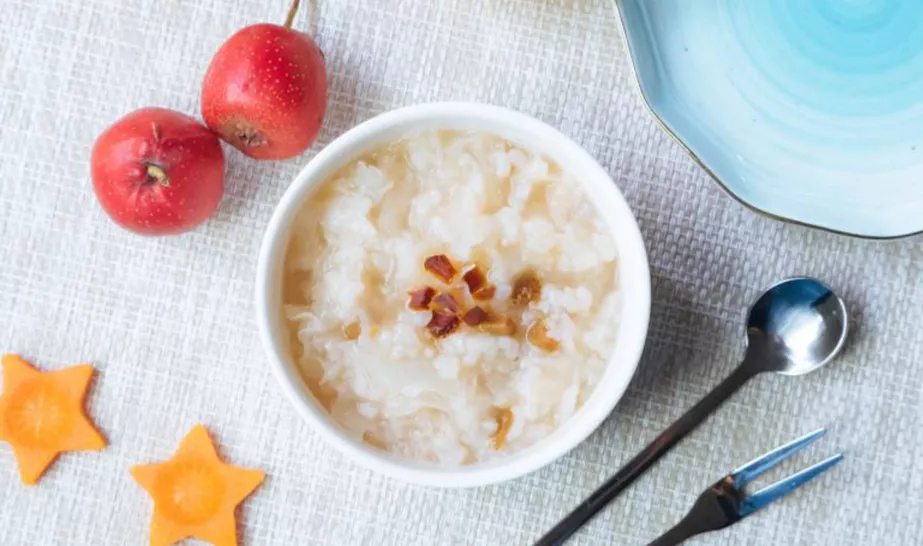Decoding the Nutritional Tapestry: Is Congee Healthy for Weight Loss?
Introduction:
In the labyrinth of weight loss diets and meal plans, one culinary gem that has been increasingly in the spotlight is congee. Rooted in Asian traditions, congee, also known as rice porridge, has been a comforting dish for centuries. But does it hold the key to a healthier, slimmer you? In this comprehensive exploration, we’ll unravel the nutritional intricacies of congee, examining its components, potential benefits, and how it might just be the wholesome addition your weight loss journey needs.
Understanding “Is Congee Healthy for Weight Loss”

1. Cultural Heritage and Adaptations:
Congee’s origins trace back to Asia, where it is revered not only for its simplicity but also for its adaptability. Across various cultures, from Chinese to Japanese and beyond, congee has evolved into a versatile dish with numerous regional variations.
2. Base Ingredients and Simplicity:
The fundamental recipe for congee involves simmering rice in a generous amount of water or broth until it transforms into a comforting, porridge-like consistency. The simplicity of its base provides a canvas for customization with an array of toppings, spices, and additional ingredients.
The Intersection of Congee and Weight Loss
1. Caloric Density and Weight Loss:
One of the fundamental aspects making congee potentially beneficial for weight loss is its relatively low caloric density. The abundance of water in its preparation contributes to volume, allowing for a more filling meal with fewer calories. This aligns with the principle of creating a calorie deficit for effective weight loss.
2. Fiber as a Satiety Tool:
The inclusion of whole grains in congee enhances its fiber content. Fiber, notorious for promoting a sense of fullness and aiding in digestion, becomes an ally in the pursuit of weight loss. By slowing down the digestive process, fiber helps control appetite and may reduce the likelihood of overeating.
Protein-Rich Possibilities:
Elevating congee’s nutritional profile by adding lean proteins such as chicken, tofu, or eggs introduces a crucial component in weight management. Protein not only supports muscle maintenance but also contributes to satiety, assisting in the quest for sustainable weight loss.
Making Congee a Weight-Loss Friendly Dish

1. Balancing Act:
While congee’s potential benefits for weight loss are evident, balance remains a key consideration. The addition of a variety of colorful vegetables, lean proteins, and healthy fats ensures that your congee is not only low in calories but also a well-rounded, nourishing meal.
2. Mindful Consumption:
Adopting mindful eating practices while enjoying congee can amplify its weight loss effects. Being attuned to hunger and fullness cues, savoring each bite, and consuming meals slowly can foster a deeper connection with your body’s signals, contributing to better portion control.
Variations and Culinary Exploration
1. Vegetarian and Vegan Options:
Explore the world of plant-based congee by incorporating an array of vegetables, tofu, or legumes. These variations not only cater to vegetarian and vegan preferences but also introduce a myriad of nutrients, adding both flavor and nutritional diversity.
2. Seafood Indulgence:
For seafood enthusiasts, congee becomes a canvas for culinary creativity. Shrimp, fish, or crab not only bring a delightful taste but also introduce lean proteins and omega-3 fatty acids, further contributing to a healthy, weight-conscious diet.
Beyond Nutrition: Congee in Cultural Wellness
Beyond its potential in weight loss, congee holds cultural significance. In many Asian cultures, congee is considered a healing and soothing food, recommended during times of illness or recovery. Incorporating congee into your diet not only aligns with weight loss goals but also connects you to a rich culinary heritage that values both taste and well-being.
Practical Tips and Considerations
1. Meal Prep Efficiency:
Congee’s adaptability and suitability for meal prep make it a convenient and time-saving option. Prepare a large batch, portion it for the week, and enjoy a nourishing meal without sacrificing time or compromising health goals.
2. Diversity in Grains:
While rice is the traditional grain for congee, consider experimenting with other whole grains such as quinoa, barley, or farro for added nutritional diversity and a twist on texture.
Exploring Flavorful Variations
1. Congee with Vegetables:
Enhance the nutritional content of your congee by adding an assortment of vegetables such as spinach, carrots, or mushrooms. These additions not only contribute vitamins and minerals but also introduce vibrant flavors and textures.
2. Seafood Delight:
Seafood lovers can rejoice by incorporating shrimp, fish, or even crab into their congee. Apart from being a lean protein source, seafood brings a delightful oceanic flavor that transforms your congee into a gastronomic experience.
3. Savory or Sweet:
The beauty of congee lies in its adaptability. Experiment with savory versions using soy sauce, ginger, and green onions, or explore the sweeter side with toppings like honey, fresh fruits, or a sprinkle of cinnamon for a comforting dessert-like twist.
The Role of Congee in Cultural Wellness
Beyond its potential for weight loss, congee’s significance transcends the realm of nutrition. In many Asian cultures, congee is considered a healing and soothing food. It is often recommended during times of illness or recovery due to its gentle nature and easy digestibility. Incorporating congee into your diet not only aligns with weight loss goals but also connects you to a rich culinary heritage that values both taste and well-being.
Practical Tips for Incorporating Congee

1. Meal Prep Friendly:
Prepare a large batch of congee and portion it for the week. This makes it a convenient and time-saving option, ensuring you have a wholesome meal readily available.
2. Experiment with Grains:
While rice is the traditional grain for congee, don’t hesitate to explore other whole grains like quinoa, barley, or farro for added nutritional diversity.
3. Hydration Reminder:
Congee’s high water content contributes to hydration, an often overlooked aspect of weight loss. Staying well-hydrated supports overall health and can aid in managing cravings.
Conclusion: “Is Congee Healthy for Weight Loss”
Incorporating congee into your weight loss journey is not just about counting calories; it’s about embracing a versatile and culturally rich dish that can be tailored to suit your tastes and nutritional needs. Whether you savor it for breakfast, lunch, or dinner, let congee be a flavorful and nourishing companion on your path to achieving your weight loss goals. As you experiment with different variations, savor each spoonful, and relish the journey towards a healthier, more vibrant you.
FAQs: “Is Congee Healthy for Weight Loss”
1. Is congee suitable for a weight loss diet?
– Yes, congee can be a healthy choice for weight loss due to its low-calorie density, high water content, and potential for promoting a feeling of fullness.
2. How does the fiber in congee contribute to weight loss?
– The fiber in congee, especially when made with whole grains, supports weight loss by promoting satiety, aiding digestion, and potentially reducing overall calorie intake.
3. Can congee be part of a balanced weight loss meal plan?
– Absolutely! Congee is versatile and can be customized with various toppings, ensuring a balanced mix of carbohydrates, proteins, and essential nutrients.
4. Are there specific variations of congee that are healthier for weight loss?
– While plain congee is a good base, adding lean proteins like chicken or tofu, along with an array of colorful vegetables, can enhance its nutritional value and make it even more supportive for weight management.
5. Does the cultural significance of congee contribute to its health benefits?
– Yes, the cultural significance of congee extends beyond its nutritional profile. Often considered a healing and soothing food, congee aligns with holistic wellness, making it a wholesome choice for those seeking a healthy approach to weight loss.

Nice post. I learn something totally new and challenging on websites